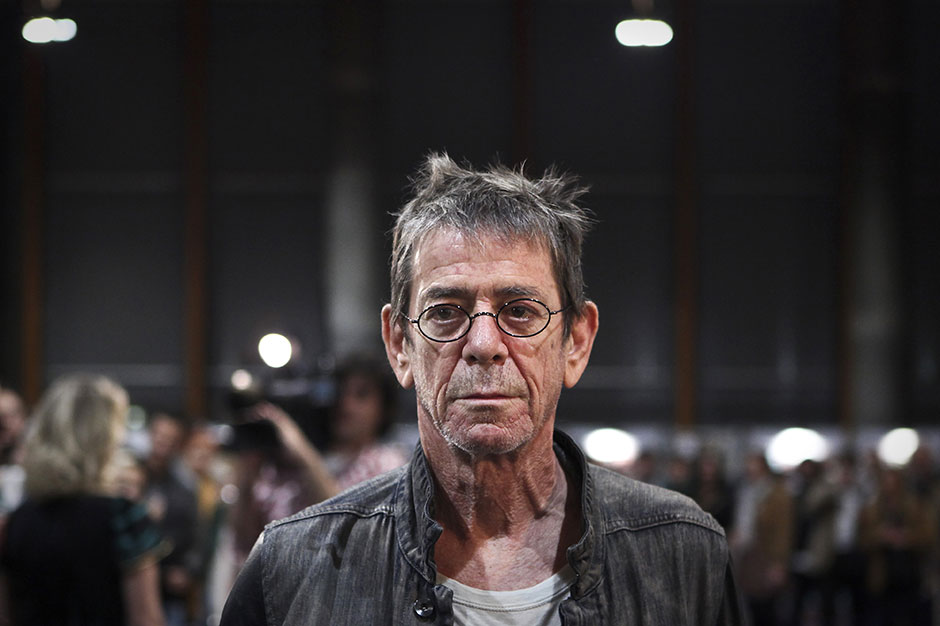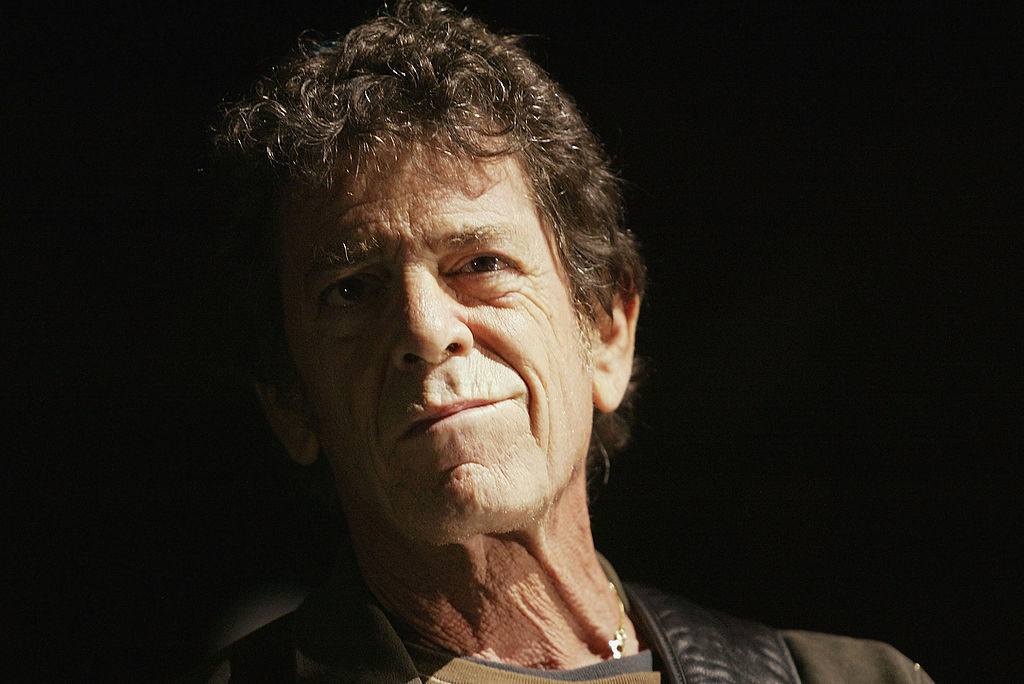Lou Reed, who died today at 71, made no secret of his disdain for many of the people who wrote about him, but longtime Village Voice staffer and Dean of American Rock Critics Robert Christgau is the only one to have his sexual preferences questioned from the stage on one of Reed’s live albums. (To wit: “Critics! What does Robert Christgau do in bed? You know, is he a toefucker?”) Here, the accused offers a few personal recollections of his own.
I didn’t know Lou Reed, but Lou Reed thought he knew me, and on one of the dozen highly variegated solo albums he released in the ’70s, the 1978 live comedy double-LP Take No Prisoners, he torpedoed my faint praise of that year’s Street Hassle — “like so many of his contemporaries, maybe he’d be better off not aiming for masterpieces” — by guessing that I was a toefucker, when in fact I’m more the toesucker type.
My review of that one thanked him for pronouncing my name right, and then soon he started churning out masterpieces. After a decade of decadence — too much booze and too many drugs and a love life that went too many places and nowhere, although I assume it had its satisfactions — Reed was making albums about a less-than-tranquil domestic stability that signified metaphorically whatever its factual accuracy: The Blue Mask in 1982 and Legendary Hearts in 1983, both featuring the doomed guitarist Robert Quine, and also I thought New Sensations in 1984, after Reed canned Quine while sticking to the concept. Listening back to that one now, though, I miss Quine, who I did know slightly as a friend of Lester Bangs, and who claimed he himself had convinced Reed to write like his feelings signified and play like his guitar was worth hearing, which except in extreme avant mode it always has been.
Oh well, who knows? These were both prickly guys. But what I’m sure of is this. In 1985 the MacArthur Foundation asked me to tender secret nominations for their so-called genius grants, and I’d been so knocked out by the Blue Mask cycle that in addition to Ornette Coleman, who nabbed one eventually, and the now-deceased Marshall Berman and Harvey Pekar, who didn’t, I chose Reed, who rumor had it was at the end of his commercial rope with RCA. He didn’t nab one either, but a few years later came the next best thing: a contract with Seymour Stein’s Sire, then America’s most artist-friendly label. I was so psyched I even agreed to attend the celebratory luncheon. There I was introduced to Lou and stuck out my hand. What I got in return was a dead fish and a disgusted look.
Oh well, what did I expect? Artists can be irascible motherfuckers, and all indications are that Lou Reed was more irascible than most. But I was right about Sire. Reed spent the next two decades of his career there, amassing a catalogue that doesn’t stand up against his four albums with the Velvet Underground plus outtakes and live goodies only because how could it? What’s most remarkable about the Velvet Underground & Nico to White Light/White Heat to The Velvet Underground to Loaded sequence is how drastically these unfashionable New York minimalists changed up their arrantly simplistic sound, getting warmer all the way as they shed Nico and then John Cale and then the pregnant Mo Tucker while picking up the essential albeit much-mocked wimp Doug Yule. And always they were defined by a leader with a history in bar-band r&b and contract songwriting who was just getting started in the sonic transmutation department.
My personal favorite among these four great albums happens to be the quietest and most lyrical, 1969’s The Velvet Underground. But the other three are where the Velvets made history — where, as the saying goes, they invented punk, or at least presaged it, by articulating a tight, forcebeat-driven rock and roll that would displace the blues- and country-tinged corn of the hippie era. This kind of rock and roll proved more malleable than it first seemed — in 2006 I triangulated my favorite current American band, yclept Wussy, as merging the Velvet Underground and the Flying Burrito Brothers. But although Reed unsnobbishly embraced the silly and the everyday, showed an elegiac tenderness on the 1990 Warhol-honoring John Cale collaboration Songs for Drella and elsewhere, and meshed for decades with African-American bassist Fernando Saunders, he preferred to lace his own sonic shifts with asphalt and sand.
After playing and probably being an apolitical cynic all his career, he debuted on Sire in 1989 with an album entitled New York that won praise for its social consciousness by copping to liberal shibboleths that wouldn’t have sounded out-of-place from Ed Koch on a campaign stop in the Bronx, and that put its truisms across with a rock more VU-like in its toughness than any of the many variants he’d been tossing his fans for years. In 1996 came Set the Twilight Reeling, functionally his love album to the companion of his last two decades, the performance artist Laurie Anderson — which is not to claim a single lyric addressed or reflected any detail of their life together, only that the mood of the thing seemed congruent with the impressions of we who didn’t know them. And in 2000, when he was 59, came his last full-fledged solo album, Ecstasy, which I’ve been playing since I heard Reed was failing on Friday. If his solo career produced a masterwork on the scale of whatever VU album you prefer, this de facto farewell is it. Companionable and perverse, enraptured and enraged, brought to the finish line by an 18-minute guitar freakout as world-historical as “Sister Ray,” it reconfigures the passions, resentments, affections, and misfiring neurons that have always driven him to fuse the lyrical and the abrasive, the spiritual and the sarcastic.
There are a bunch of other records, of course — post-Ecstasy, a Poe collab that probably got too much mazel tov and a Metallica collab that probably didn’t get enough. But if you want a sense of how he proceeded into that dark night, two of his many live albums are worth a listen: 1998’s Perfect Night and 2004’s Animal Serenade. In both he’s wisecracking and enjoying his guitar and palpably proud that he’s written a shitload of songs people want to hear. What he was like offstage those nights I don’t know and don’t care. What I do know is that the world is poorer because there’ll be no more of them.





